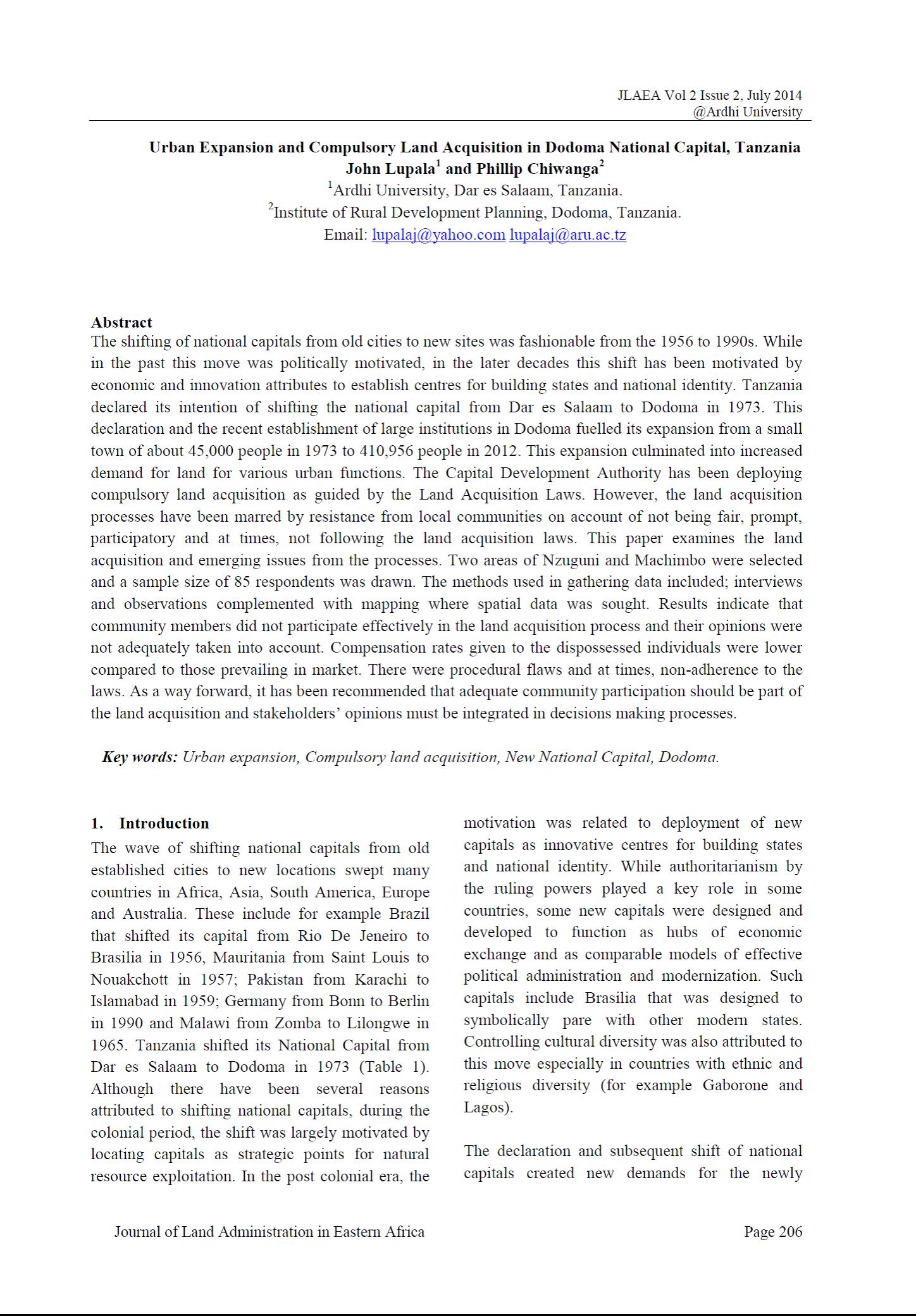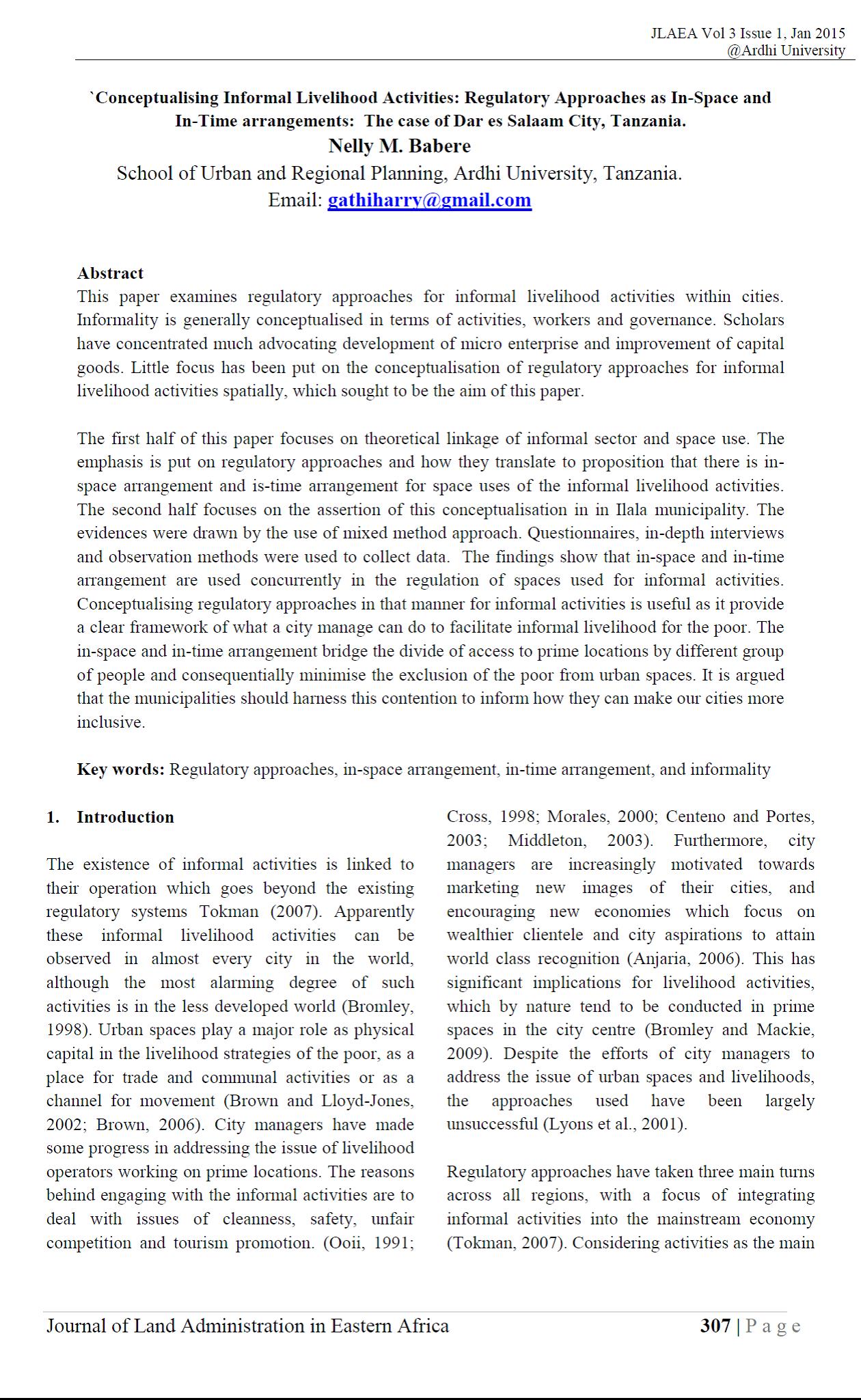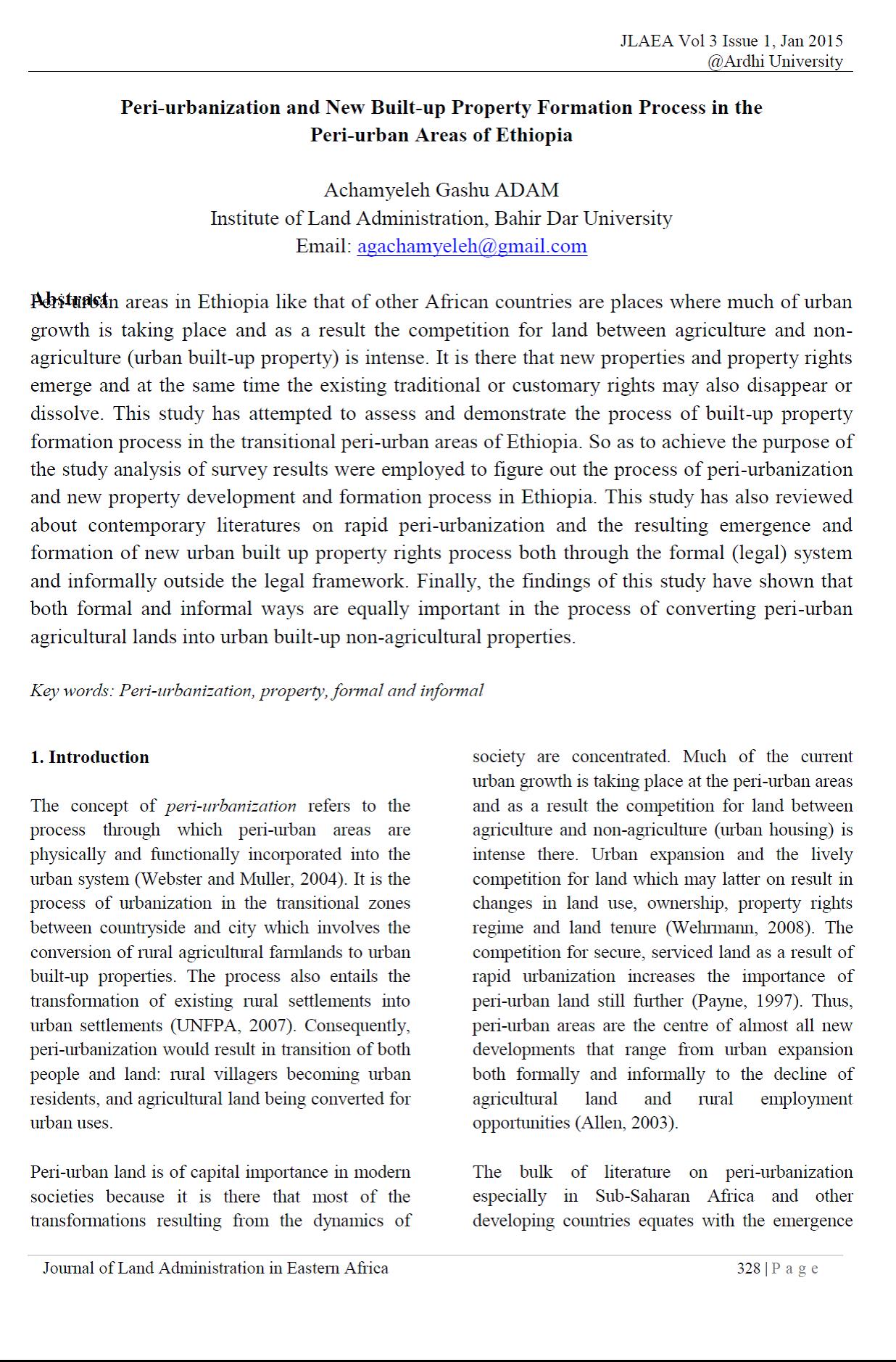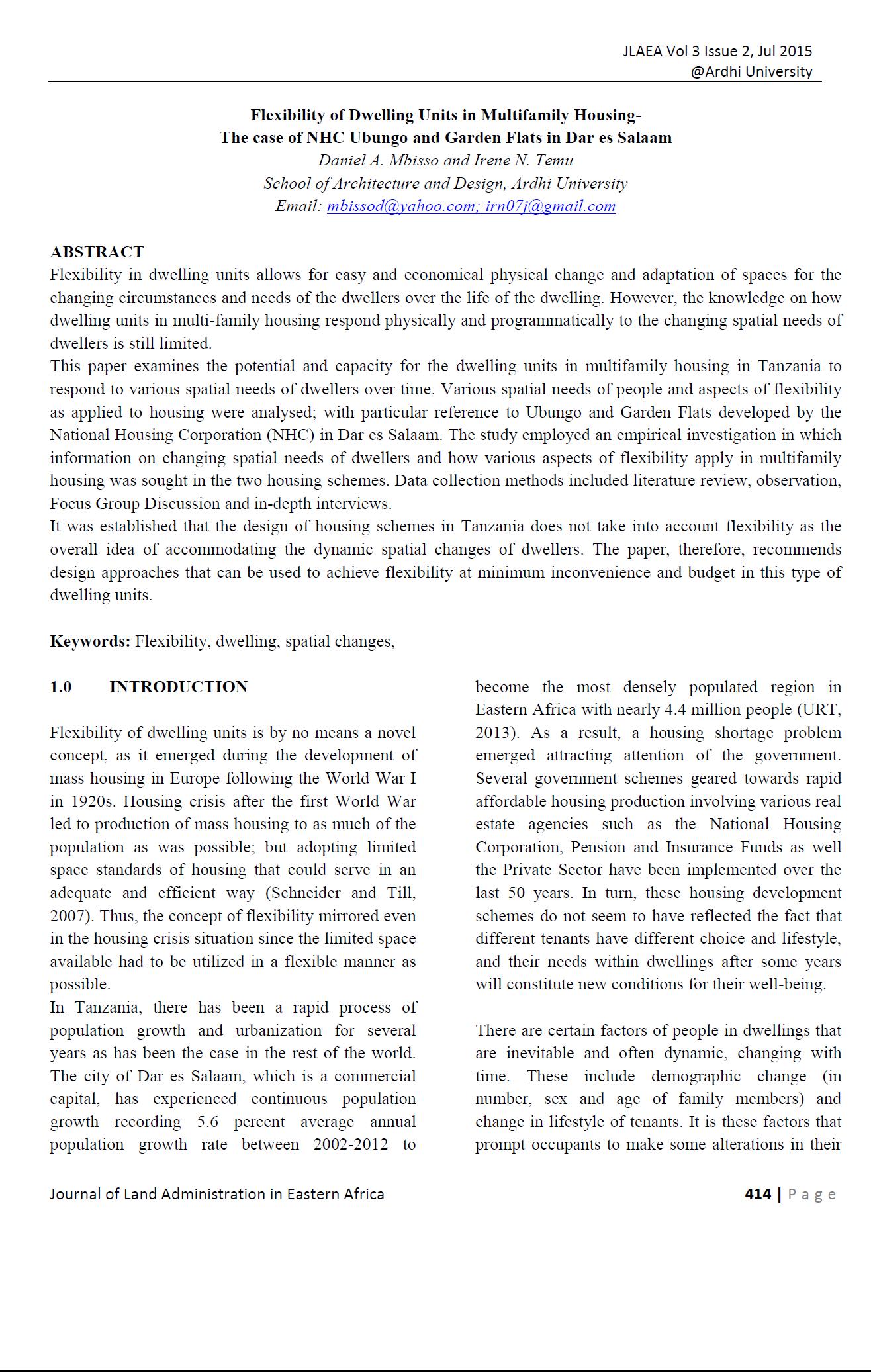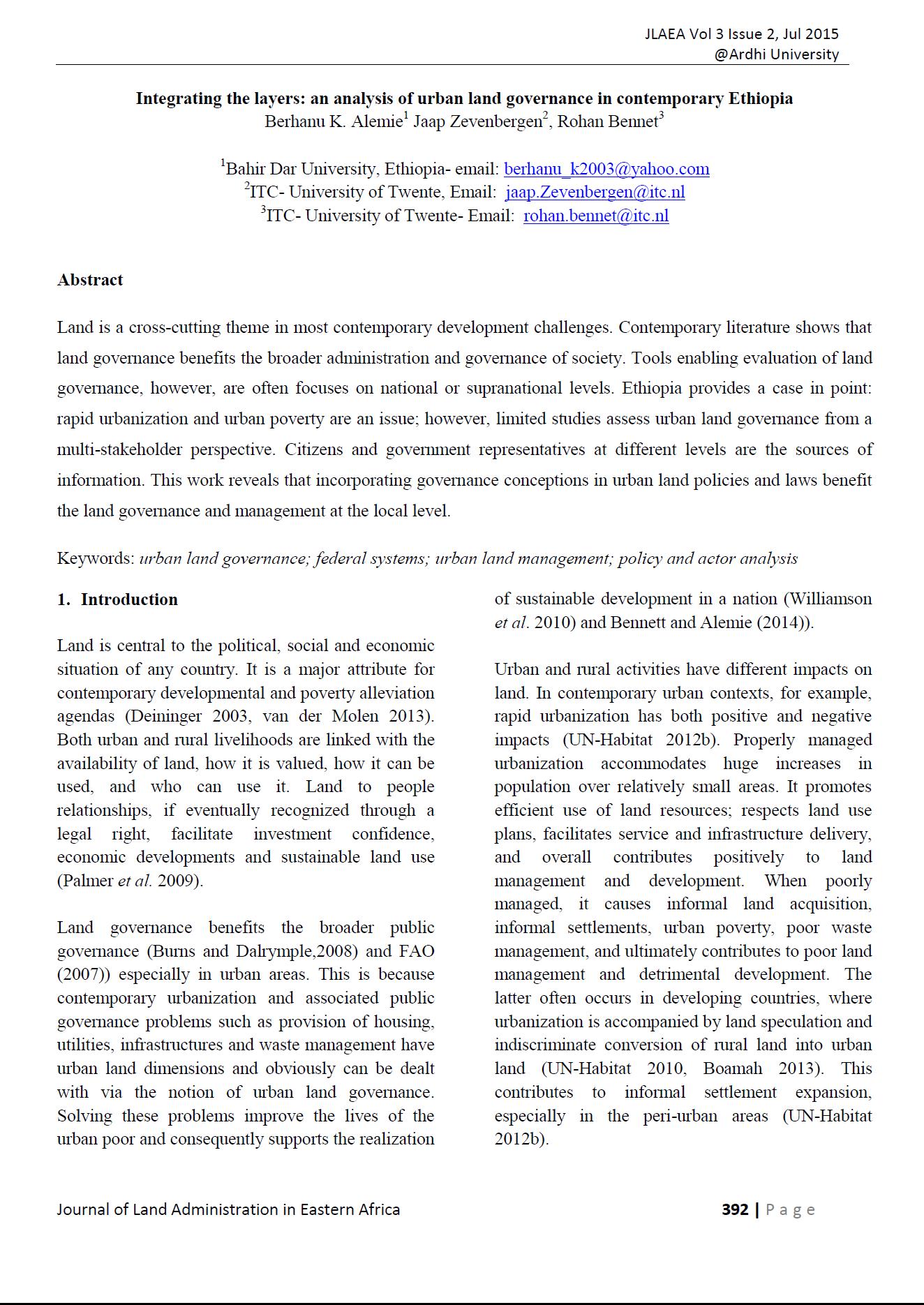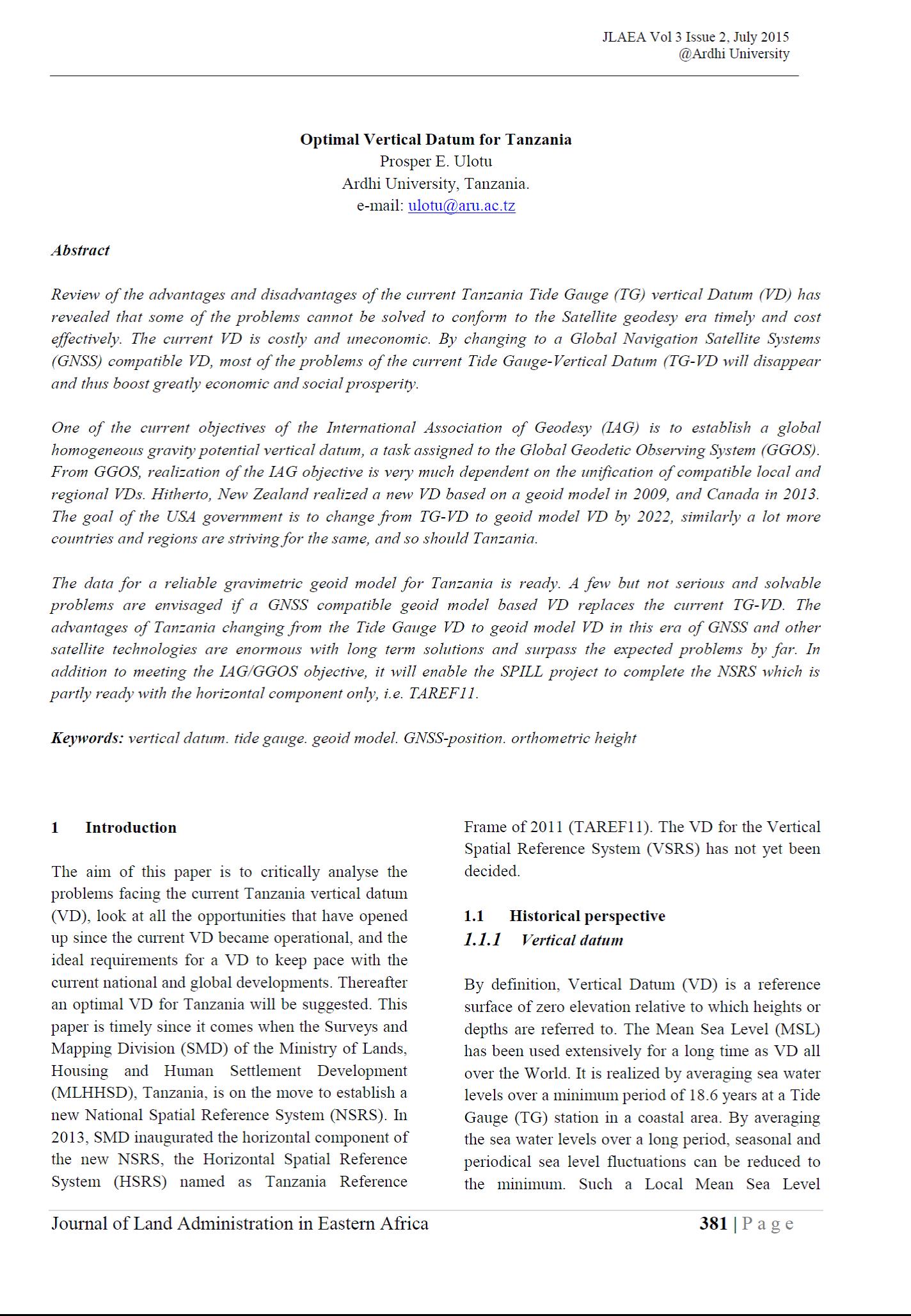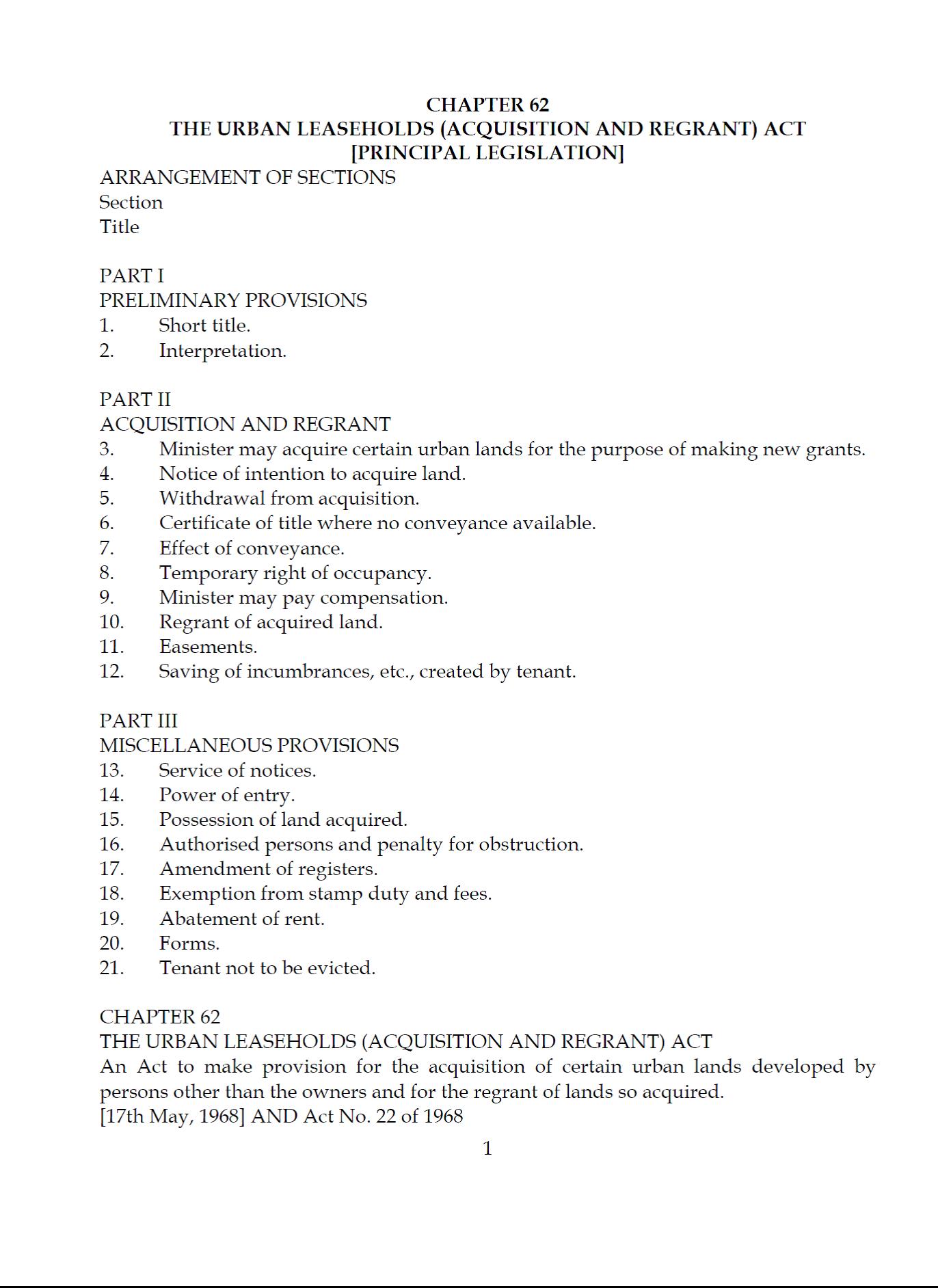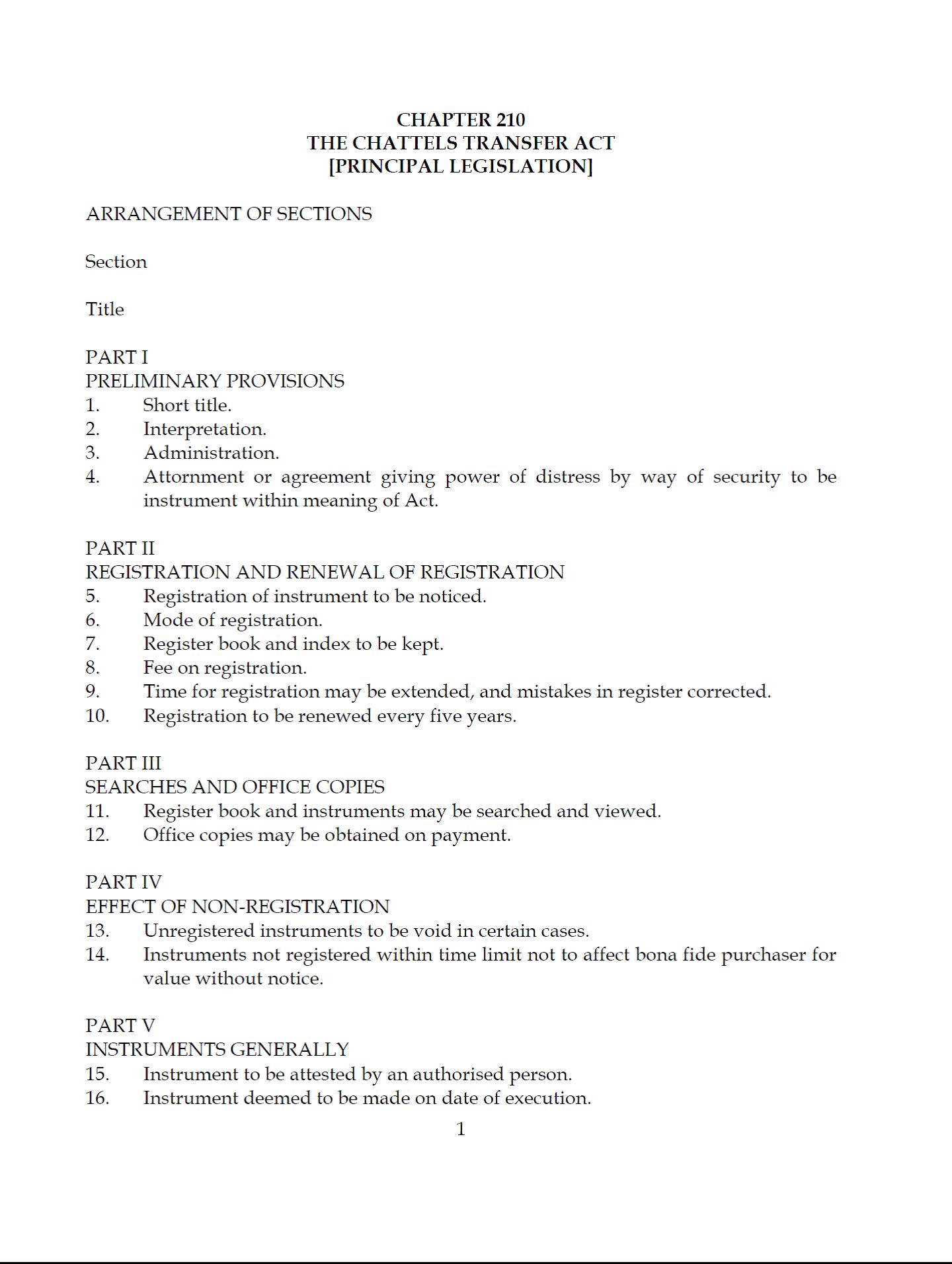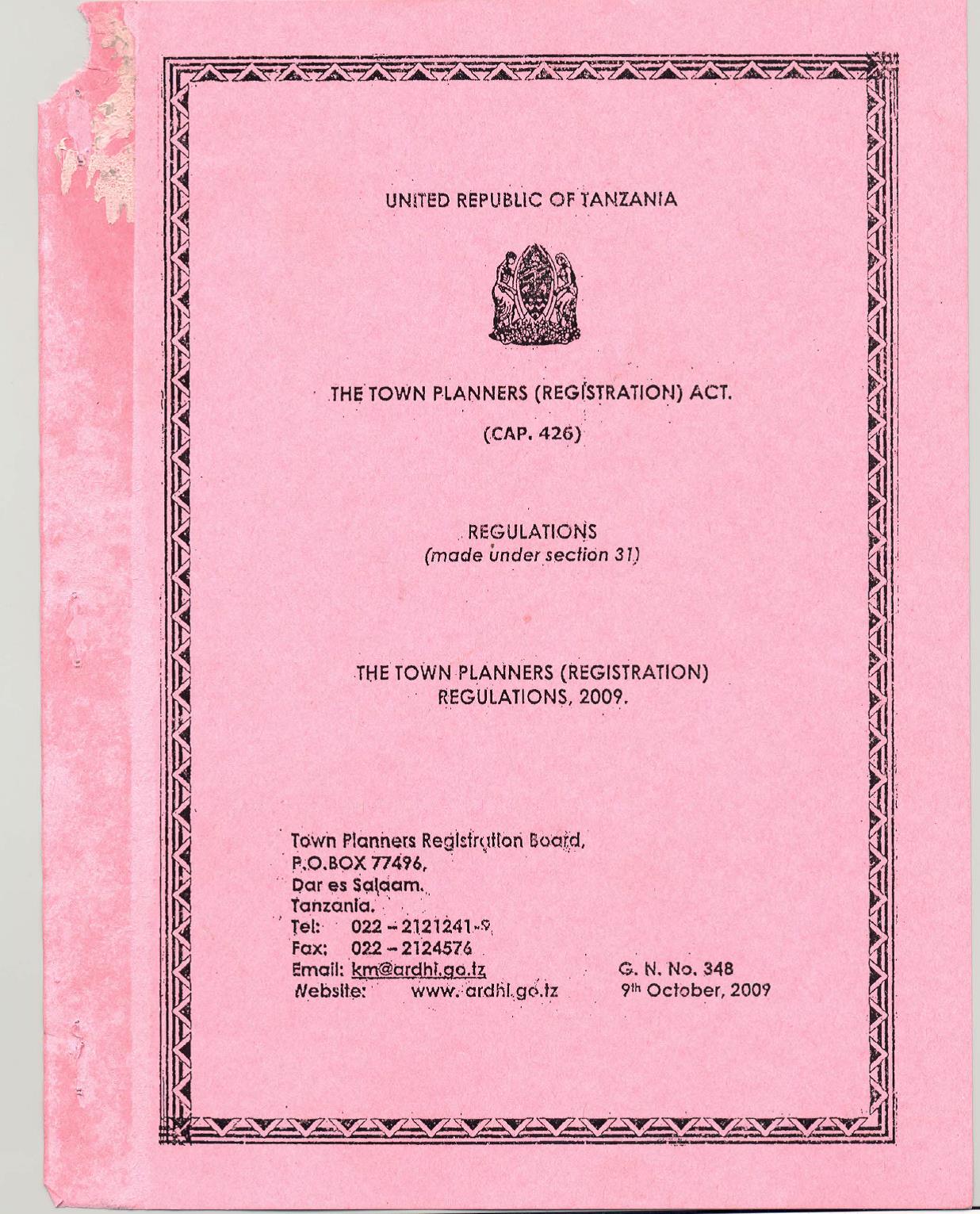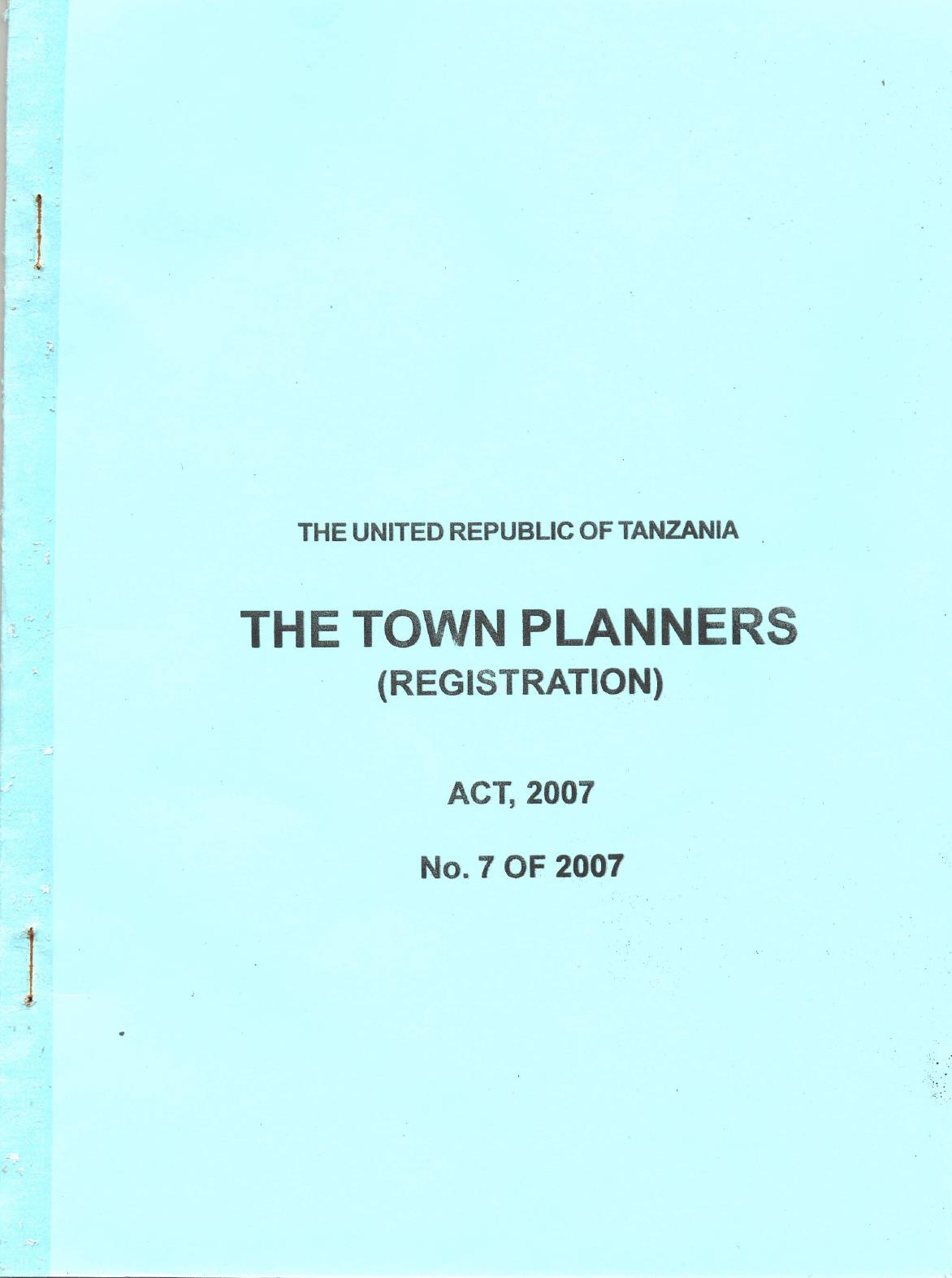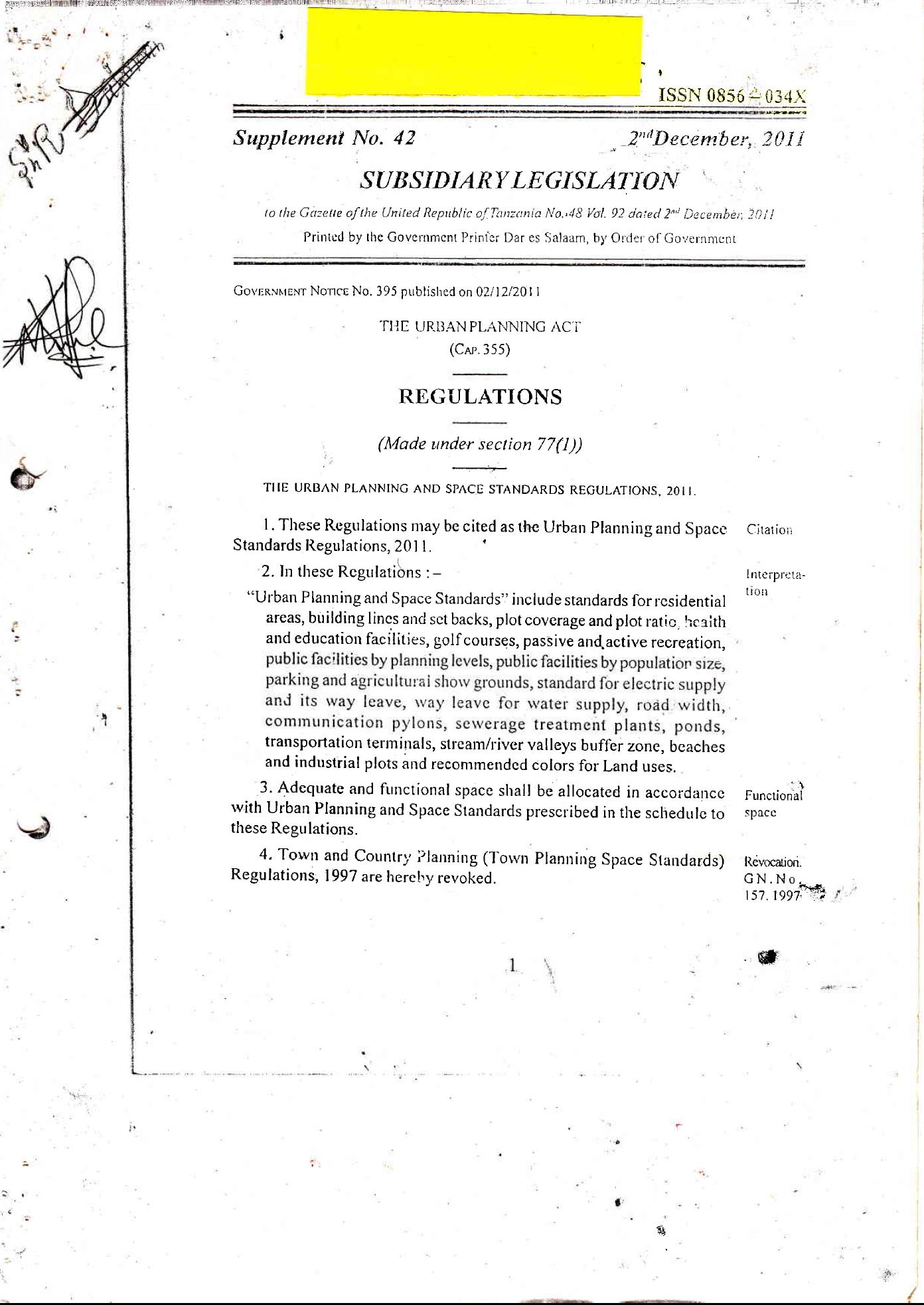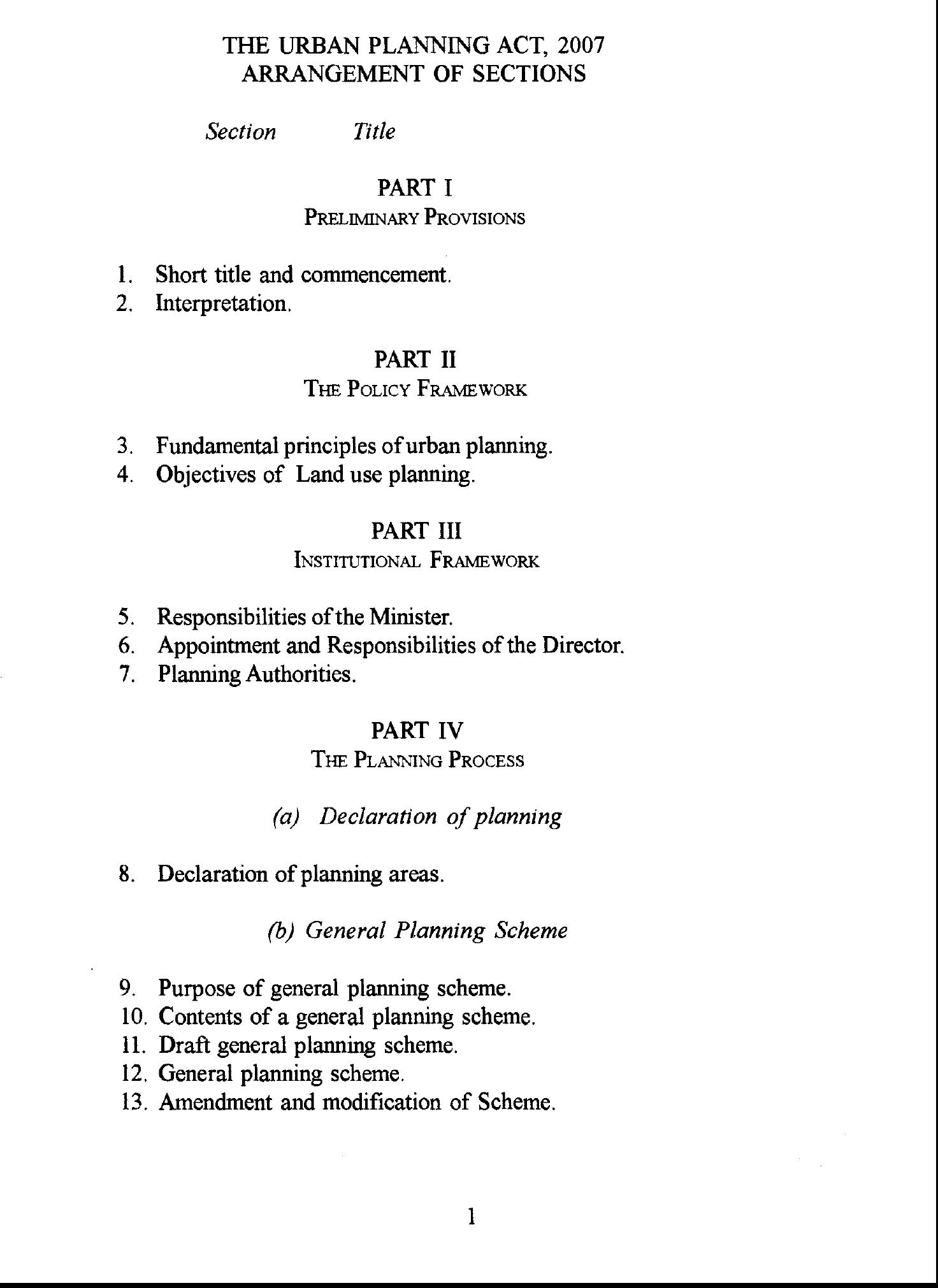Urban Expansion and Compulsory Land Acquisition in Dodoma National Capital, Tanzania
The shifting of national capitals from old cities to new sites was fashionable from the 1956 to 1990s. While in the past this move was politically motivated, in the later decades this shift has been motivated by economic and innovation attributes to establish centres for building states and national identity. Tanzania declared its intention of shifting the national capital from Dar es Salaam to Dodoma in 1973. This declaration and the recent establishment of large institutions in Dodoma fuelled its expansion from a small town of about 45,000 people in 1973 to 410,956 people in 2012.

